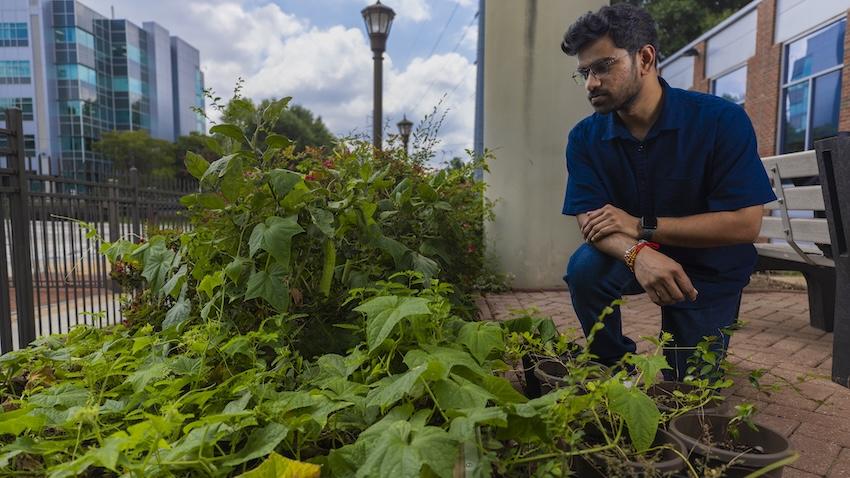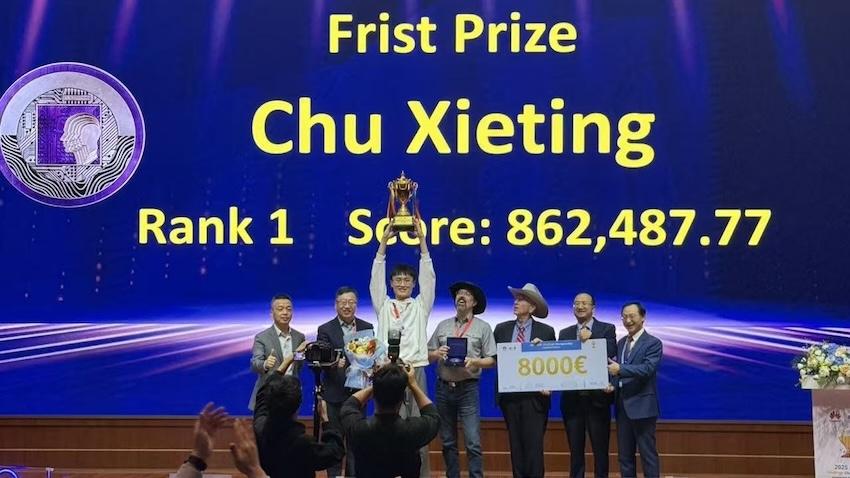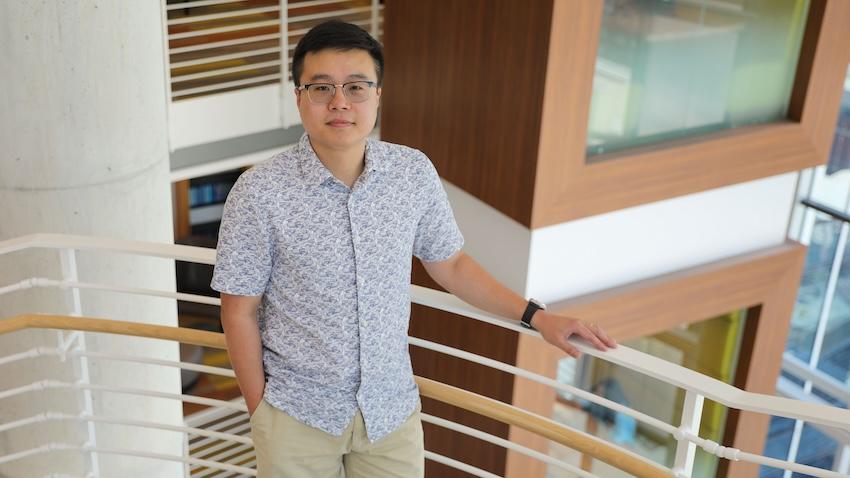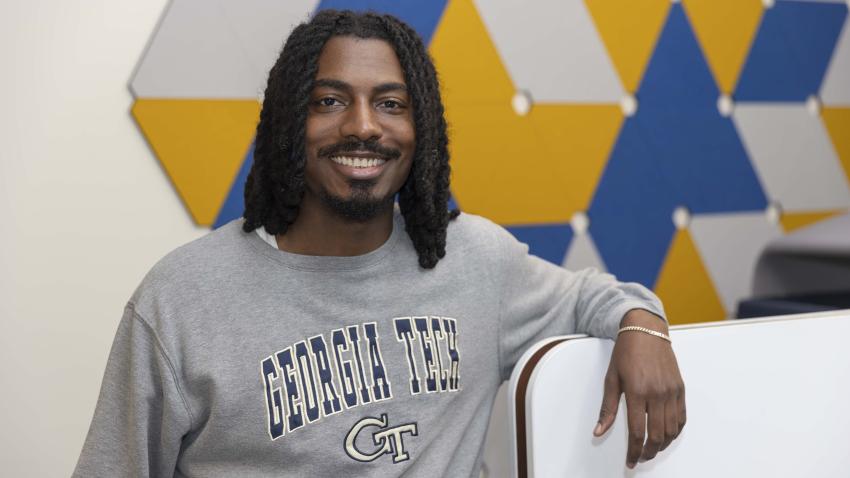
Q&A: A Navy Veteran’s Journey from Ship Systems to Software Systems
Ian Wilson didn't know it when he left high school early to join the U.S. Navy, but the technical and academic rigor of his service would set the foundation for his future in computer science.
Wilson worked for six years as an Electrician’s Mate (nuclear), learning the fundamentals of electrical engineering, physics, and fluid dynamics while serving aboard nuclear-powered ships. After completing his service, he attended Georgia State University. He later transferred to Georgia Tech, where he’s now a third-year computer science (CS) major.
From maintaining shipboard electrical systems to writing software and mentoring peers, Wilson’s journey reflects a steady drive to learn, adapt, and apply his skills in new ways.
Can you share a bit about your time in the Navy?
I was in the Navy for six years and worked as an electrician’s mate nuclear, meaning that I worked with circuit breakers and circuits aboard nuclear ships in the U.S. Navy’s fleet. I got my first real taste of academic rigor and discipline here, as I was expected to be both a service member and a student (we had to learn electrical engineering, physics, and fluid dynamics for the job). The training I received in the Navy helps me now with my studies.
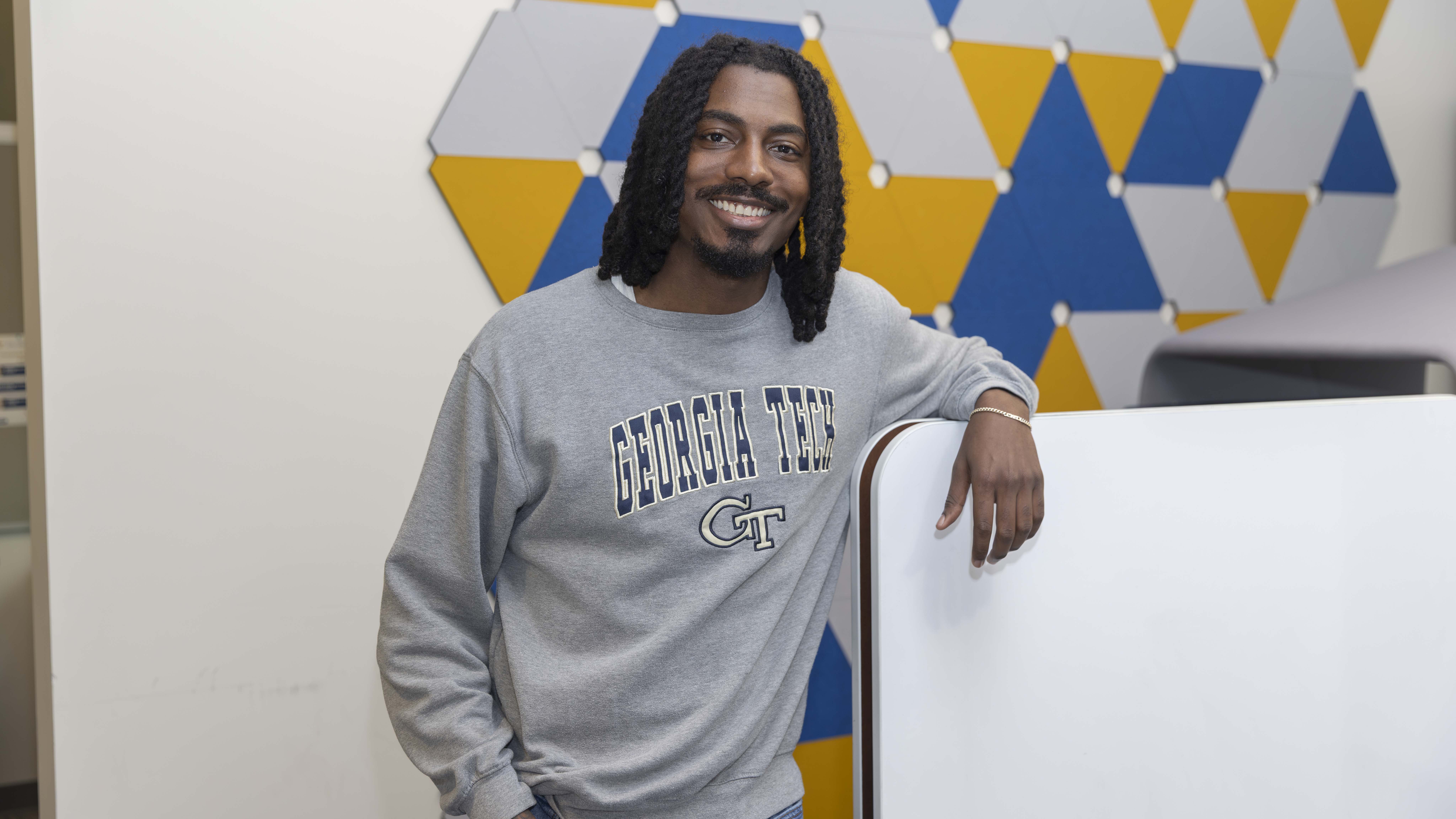
What motivated you to transition from military service to studying CS?
I’ve always had a passion for learning, whether that is academic or experiential. My time in the service taught me a lot, not just in terms of what I learned on the job, but also about so many different cultures around the world. I was fortunate to complete a year of college for free with the Navy’s tuition assistance.
Technology was something that I had always been interested in, but never really exposed to. My high school didn’t offer CS classes, no one in my family works in the technology sector, and no one I knew outside my family did either. In whatever I do, I always want to join and compete with the best and brightest, and there was no better place to do it than Georgia Tech.
What has the transition from Georgia State University to Georgia Tech been like?
My mother is an alumnus of Georgia State, and when I was getting out of the service, I was still missing a couple of classes needed to transfer to Tech. Attending Georgia State made her pretty happy and let me complete the remaining classes I needed.
I wanted to come to Georgia Tech to learn at an amazing university and to be surrounded by bright minds. There is a large step up in difficulty between classes I’d taken at Georgia State and those here at Tech, particularly the math classes, but the discipline I learned in the Navy helped me to really buckle down and put the necessary effort in to adjust to the increased difficulty.
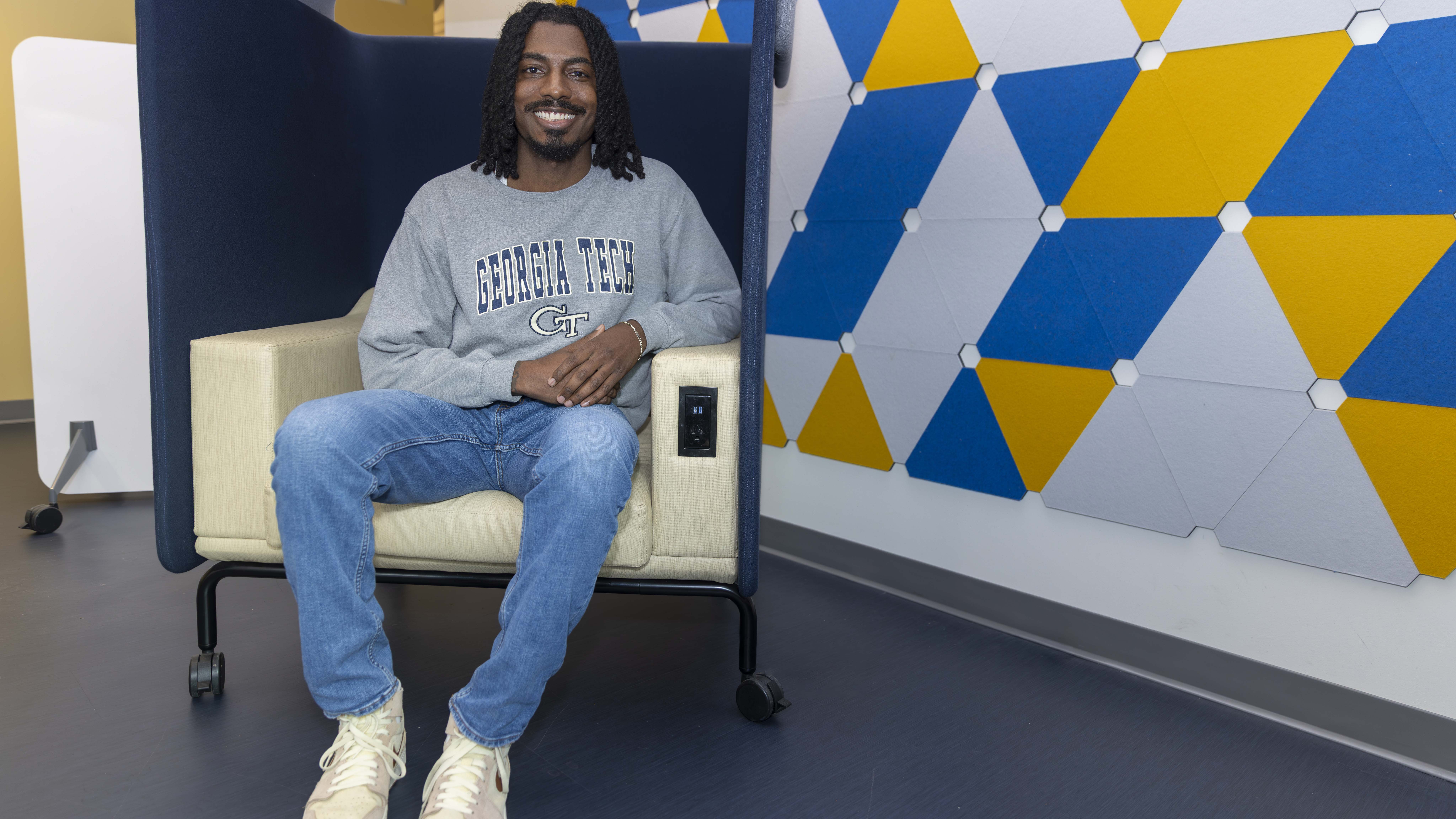
What are your CS threads, and what drew you to them?
My threads are Systems and Architecture, and Information Internetworks. Technology moves really fast, and there’s always a “new” thing, but the fundamentals have been the same for quite some time. This thread combination gives you that understanding of the fundamentals of computing that will be the same throughout my entire career.
What internships have you had?
At Fiserv, I was part of the platform automation team working as a software developer. The transition to the cloud is still an ongoing transformation that many companies are making, despite the technology having been out for quite some time, and Fiserv was one of those companies still making the transition from on-prem servers to cloud services. My job was to write software to automate many of their networking tasks during this time.
At the Georgia Tech Research Institute (GTRI), I was a software developer intern for their autonomy technology transition team. This team primarily did work for the Department of Defense. I maintained and enhanced their drone testing infrastructure, as well as worked on the core SDK team.
I learned how teams work together to complete large-scale projects, whether that’s Agile methodology, sprint creation and coordination, or the intangibles employers expect you to know but schools don’t teach. What they teach you in school is just the start or part of your education. There’s a large piece missing that you can only really learn from experience.
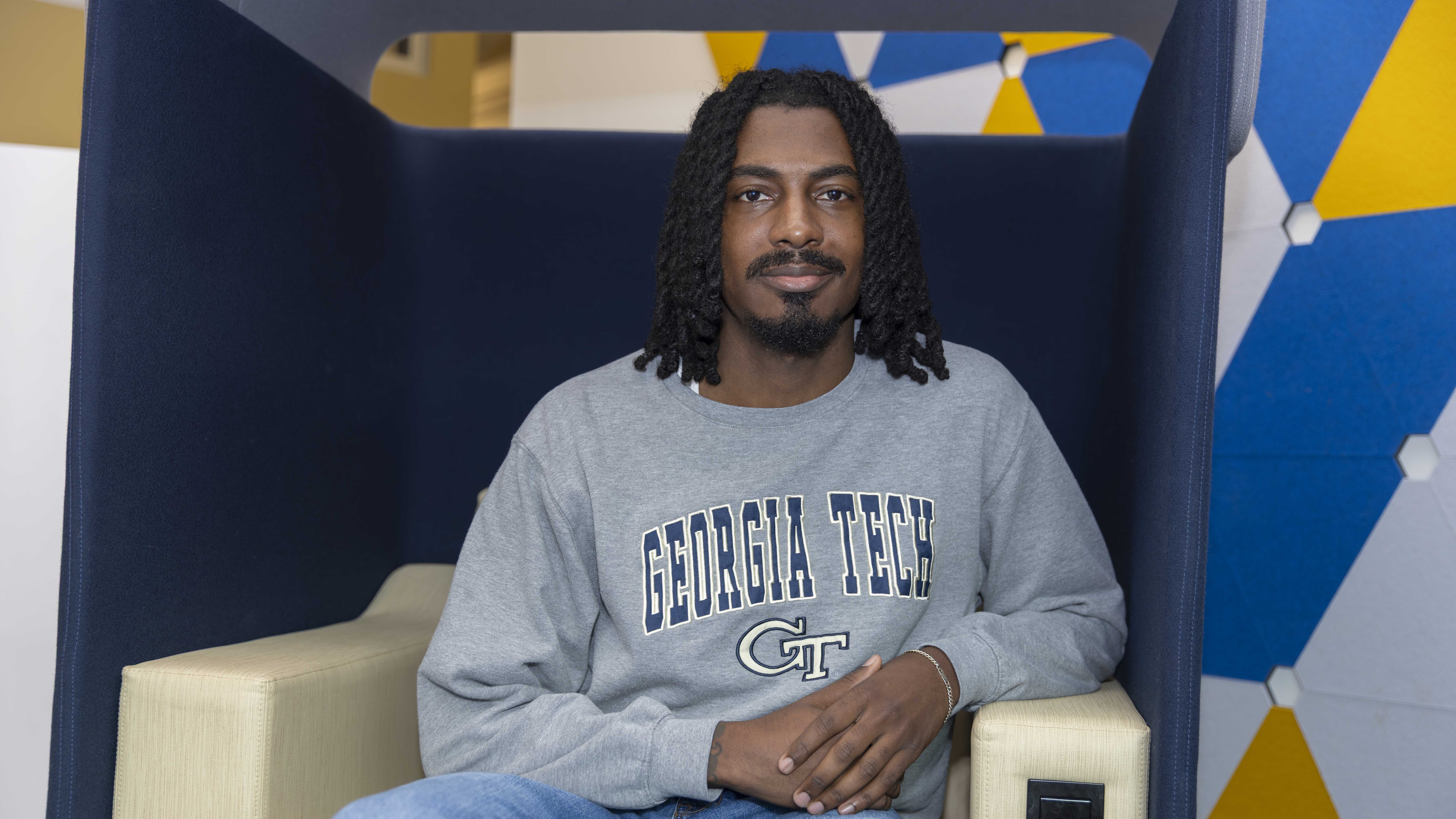
Have any faculty been particularly influential during your time at Georgia Tech?
Dr. Mary Hudachek-Buswell has been not only the best professor I’ve ever had (and runs the best course on campus, CS 1332) but is also an incredible mentor for me at Tech, and a major reason why I continue to be a teaching assistant (TA) for the course. She’s highly connected with students who have worked for her, and I’m proud to be counted among the extremely bright students who have had the privilege to work for her over the years.
Are you a part of any clubs?
I spent a couple of semesters in the Big Data Big Impact (BDBI) club on campus and am fighting to make time for the Grey Hat Cybersecurity Club between classes and being a TA. I really do enjoy learning, and if I could expand the day to more than 24 hours, I would try to be in as many clubs as possible because many of them are really interesting, and you can learn a lot by taking part in them, like I already have from BDBI and Grey Hat.
Has your experience as a veteran influenced your perspective as a student or TA?
I think it may give me a level of maturity and wisdom that other students may not have, just because I’ve already been in the workforce and know what it’s like to a certain degree. I think it helps because I can give them a different perspective on many situations.
What advice would you give to other veterans considering a degree in CS?
I would say that if you were able to make it through your time in the service and the pressures —both physical and mental —they put you through, then you can absolutely succeed by applying yourself to learning CS. What matters most is having a passion for CS and software engineering, as well as the discipline and dedication to put in the effort to succeed. You’ve already mastered the discipline part. If you have a passion for learning, then the sky is the limit.
